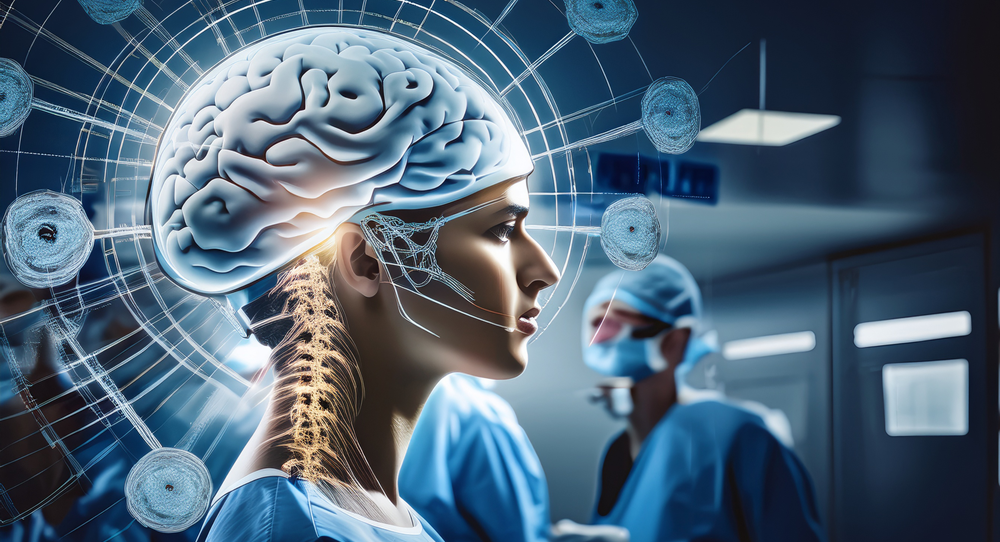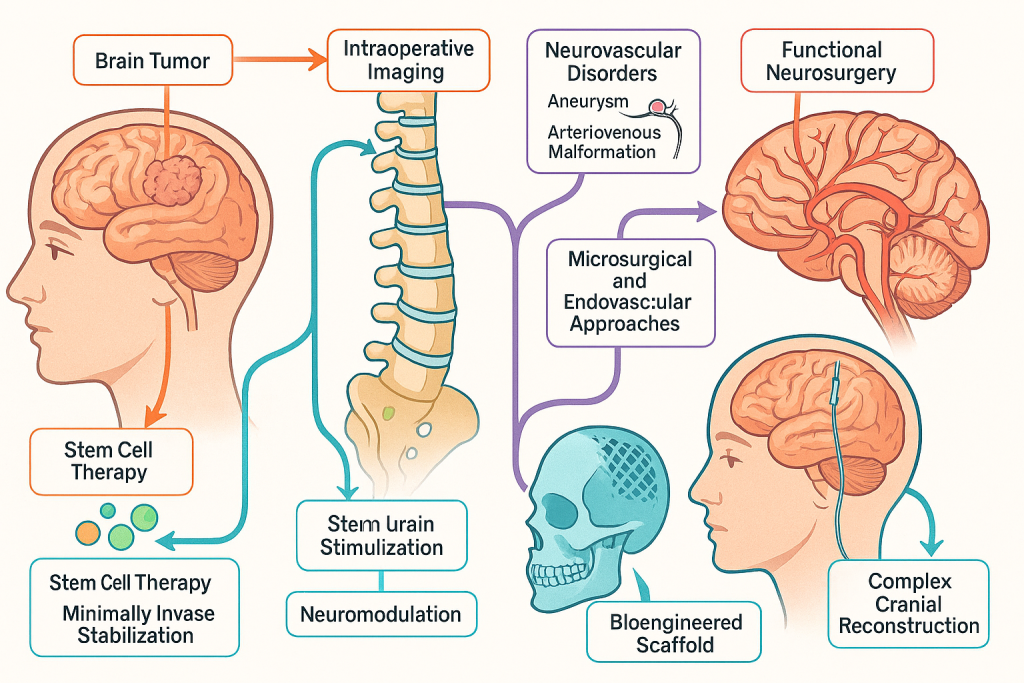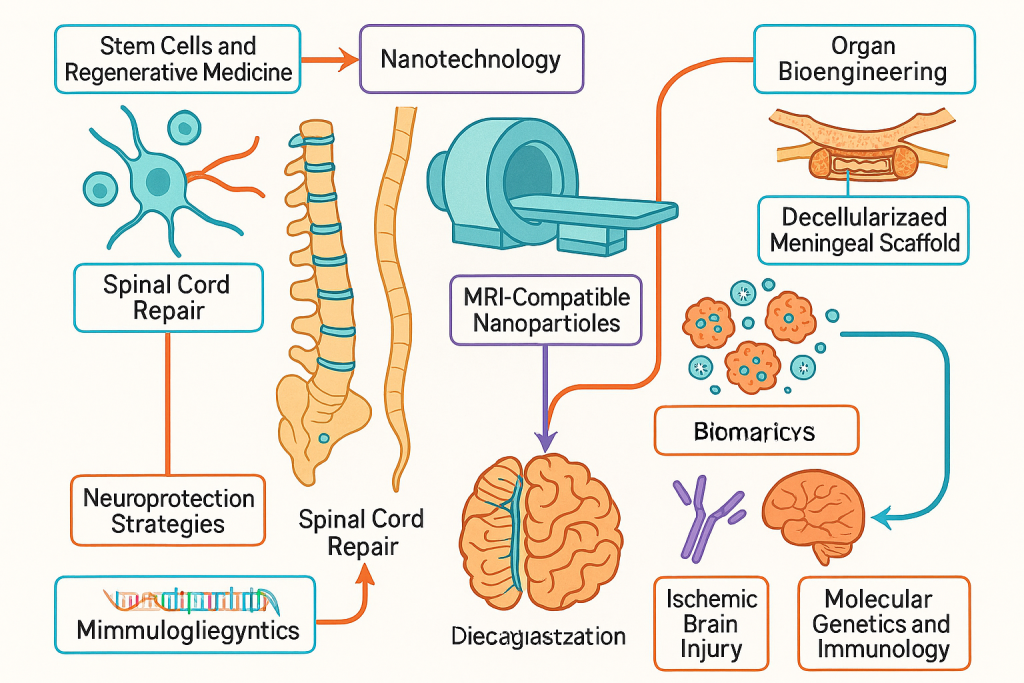Neurosurgery

Precision Surgical Care for Brain, Spine, and Complex Neurological Disorders
The Center for Liver Research and Diagnostics (CLRD) has grown into a multidisciplinary institution that combines advanced medical research with clinical excellence. Building on decades of pioneering work in molecular genetics, regenerative medicine, and organ bioengineering, CLRD now extends its expertise into neurosurgery. This specialization focuses on precision surgical care for the brain, spine, and complex neurological disorders. Our approach integrates cutting-edge surgical techniques with translational research, ensuring that every intervention is safer, more effective, and tailored to the unique needs of each patient. The foundation of this program lies in neuro-regeneration research, nanotechnology-assisted interventions, bioengineered neural constructs, and molecular diagnostics, all of which enable us to deliver next-generation neurosurgical care.
Scope of Neurosurgical Expertise
CLRD’s neurosurgical program addresses a wide spectrum of conditions that demand high precision and innovation. We provide advanced treatment for brain tumors through meticulous resection guided by intraoperative imaging and molecular profiling. Spinal cord injuries are managed using regenerative strategies that combine stem cell therapy with minimally invasive stabilization techniques. Neurovascular disorders such as aneurysms and arteriovenous malformations are treated using microsurgical and endovascular approaches that reduce risk and improve recovery. Functional neurosurgery, including deep brain stimulation and neuro-modulation, offers relief for patients suffering from movement disorders and epilepsy. In addition, our expertise extends to complex cranial reconstruction, where bioengineered scaffolds are employed to restore structural integrity following trauma or oncologic surgery.

About These Disorders
Neurological disorders represent some of the most challenging conditions in modern medicine, often leading to severe disability or even death if not managed appropriately. Brain tumors can disrupt cognitive and motor functions, making precise surgical excision critical to preserving healthy tissue and neurological function. Spinal cord injuries frequently result in paralysis and sensory loss, requiring innovative regenerative solutions to restore mobility and independence. Neurovascular anomalies pose life-threatening risks of stroke or hemorrhage, necessitating rapid and accurate intervention to prevent catastrophic outcomes. Degenerative diseases such as Parkinson’s disease and amyotrophic lateral sclerosis demand long-term strategies that combine surgical intervention with cellular therapy and neuroprotective agents. At CLRD, every treatment protocol is informed by molecular insights, regenerative potential, and advanced imaging technologies, ensuring that patients receive care that is both comprehensive and personalized. Neurological disorders represent some of the most challenging conditions in medicine, often leading to severe disability or mortality, as follows:
Brain Tumors
Spinal Cord Injuries
Neurovascular anomalies
Degenerative diseases
Research Foundation
The neurosurgical capabilities at CLRD are deeply rooted in an extensive research portfolio that spans several decades. Our work in stem cells and regenerative medicine includes more than 150 publications on neural stem cells, spinal cord repair, and neuroprotection strategies. Nanotechnology research has led to the development of MRI-compatible nanoparticles for intraoperative imaging and targeted therapy, enhancing surgical precision and postoperative recovery. Organ bioengineering initiatives have resulted in the creation of decellularized meningeal scaffolds for spinal cord reconstruction, offering new hope for patients with severe injuries. Molecular genetics and immunology research has identified biomarkers for neuroinflammation and ischemic brain injury, enabling early diagnosis and personalized treatment plans. This synergy between bench and bedside ensures that CLRD remains at the forefront of neurosurgical innovation.

CLRD’s neurosurgery specialization is not merely about performing surgeries; it is about transforming neurological care through precision, innovation, and research-driven protocols. By combining advanced surgical techniques with regenerative medicine, nanotechnology, and molecular diagnostics, we aim to redefine outcomes for patients with complex brain and spine disorders. Our commitment is to offer hope where conventional treatments fall short, ensuring that every patient benefits from the future of neurosurgical science today.
